]> Briffa's Paul Randle explains how to navigate the minefield of music rights clearance As products and characters are developed across new forms of me
April 6, 2018

]>
Briffa's Paul Randle explains how to navigate the minefield of music rights clearance

As products and characters are developed across new forms of media the use of audio and music is becoming more widespread. Music may be an integral part of an existing TV show or it may be that the creators of a new DVD are keen to use a famous piece of music. In either case, the right to use the music must be established.
The use of existing music requires the user to undertake what can be an arduous clearance process. For most well known music it is necessary to coordinate various licences in order for the music to be used. In the first place a license of the original music is required and this is obtained from the music publisher who will have acquired such rights from the composer/s. Secondly, permission to use the actual recording of the song must be secured and this usually comes from the record company who will have acquired the rights from the artist in question. Even then the permission of the original artist(s) may be required depending upon the contractual relationship between them and their record company. 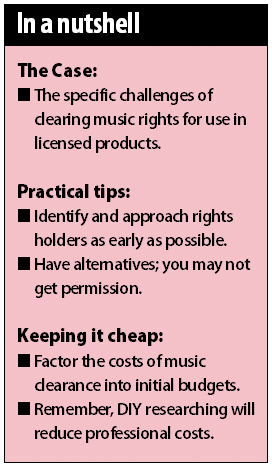

The distinction between the different rights in the music is important. Take the example of the song 'A little help from my friends' which was composed by Lennon and McCartney but has been recorded by amongst others Joe Cocker, Wet Wet Wet and of course the Beatles. In order to use the Wet Wet Wet version of the song it is necessary to have permission from Lennon and McCartney's music publisher as well as the Glasgow band's record company. It is important to remember that there may be a number of composers involved in writing the song or piece of music and so permission may be required from host of music publishers.
In addition, a further obstacle to clearance may be that the artist of the song has retained their moral rights in the recording. Moral rights entitle the artist to object to any treatment of their copyright, in this case musical work, which is derogatory or harms their reputation. Most standard contracts between the record company and the artist waive these rights but this should not be assumed. 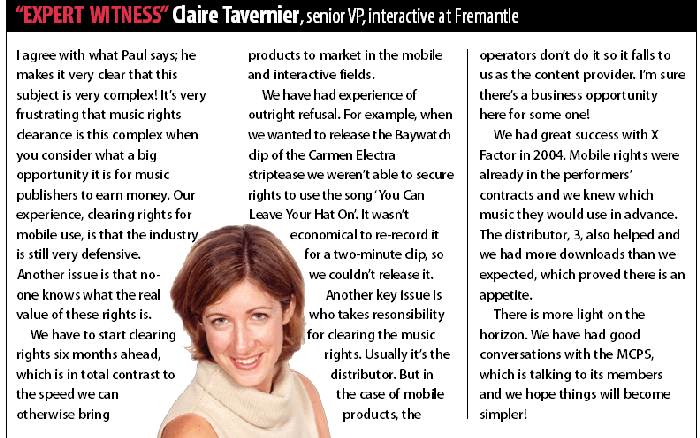
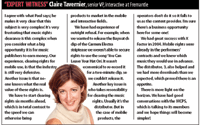
The reasons behind a failure to obtain clearance can be neatly categorised. Firstly, the majority relate to money i.e. the licence fee is too high or more than the proposed user is prepared to pay. Secondly, the rights owner objects to the type of use in question and would not permit the use for any price. Most objections that are based upon the second category are where the artist themselves retains some control over the use of the rights in question.
One of the difficulties faced is that the piece of music may be integral to the property or work to be exploited. For example, the music may be the signature theme or incidental music to a classic TV show. In most cases the TV production company will have contracted with the composers and record company to ensure that the rights in the music would pass with other media rights but with older titles records and documentation may not be available and the vendor may be unwilling to provide warranties to satisfy the purchaser. 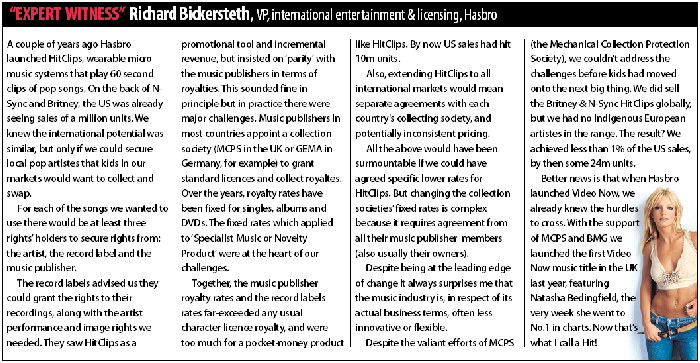
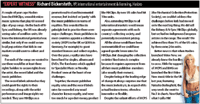
A well-known example of permission being refused related to the hit single 'Dreams' by Gabrielle. The song started out life as an exceptionally popular UK club hit based upon a limited number of vinyl copies which had been pressed. When a record label prepared to take the track and launch it in the mainstream it investigated the provenance of the music in the record and discovered that the track contained a piece, or sample, of the original recording of Tracy Chapman's hit record 'Fast Car'. However, the owners of the copyright in 'Fast Car' sound recording refused to license the sample on any terms. This forced the record company behind 'Dreams' to secure the master tapes and replace the offending material before launching it publicly. 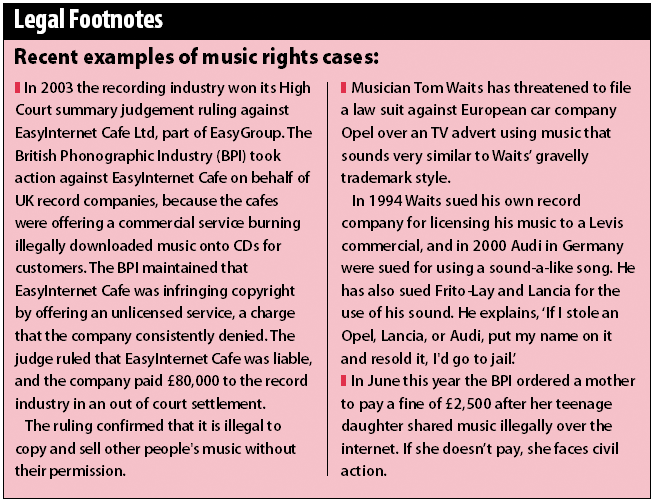
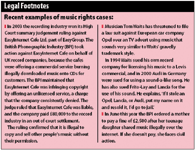
Given these prospective problems it may seem that the best option is to simply re-work rather than copy the original. Music production companies can be engaged to produce sound-alike music but this approach is not free from its own dangers. The dividing line between music which is merely similar and that which has infringed the original by taking a substantial part of the original is a notoriously difficult one to draw. In addition, even if copyright is not infringed, if the public associate the sound-alike music with the original artist then that artist may well have a claim for false endorsement or passing off.
Although music clearance is a complex process it is possible to lay down some pointers to make the process less painful. At the heart of music clearance is research, a process that can take some time. Therefore, starting the research as soon as possible to leave plenty of time before you intend to actually use the music in question is advisable. If the music has been released commercially in the UK then contacting the (Mechanical Collection Protection Society) is a good place to start as they can provide a licence to use the publisher's or artists 'mechanical' right. The next step is contact the record company who released the music you wish to use. Most record companies have a dedicated individual or department to deal with the licensing of their sound recording catalogue. If you do get permission to use, make sure this is provided in writing, and that the licensee gives warranties confirming that the music does not infringe any third party's intellectual property rights. Also, if there are several rights owners, make sure that they are all prepared to license before entering into a contract so you do not pay one licence fee without getting all the rights you need to use the music. Finally, if in doubt use a professional clearance company or specialist law firm.
Paul Randle is a solicitor with London-based specialist legal firm Briffa.
You May Also Like






